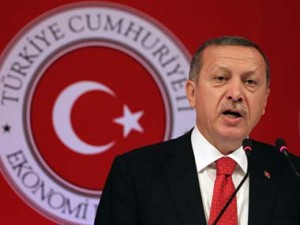By now it seems that that the audacious coup attempt in Turkey by a section of the country’s military forces has failed to unseat President Recep Tayyip Erdogan. If that is the case — the situation is extremely fluid still — it is probably for the better because toppling of the country’s elected leader may dangerously destabilise a western ally in a region already reeling from war, terrorism and mass migration.
What we do know at the moment is that 754 members of the armed forces linked to the coup have been arrested which includes 29 colonels and five generals who were removed from their posts.
Images of discarded gear, soldiers walked among tanks with their hands held up, surrendering to government forces on Istanbul’s Bosporus Bridge are dominating the newscasts. CNN-Turk is broadcasting footage of people — who were urged by President Erdogan on Friday night to “come out on the streets and resist the coup — climbing atop the tanks.
At least 60 people have been killed in the attempted coup, most of them civilians but the list also includes 16 supporters of the coup and many police officers who opposed it, says state-run Andalou Agency.
Reports of explosions and gunfire are still coming in, however, and CNN, quoting ministry sources, is saying that at least one air force base in the country is still in control of the insurgents. But signs that the coup attempt is faltering lies in the fact that President Erdogan, who according to Reuters was holidaying on the southwest coast when the coup was launched, flew into Istanbul early on Saturday where he was greeted by hundreds of supporters at Ataturk Airport.
Erdogan has been in power since 2003 and was reelected as President with a huge mandate in 2014. In a televised speech from the airport he claimed to be still in charge, that the uprising was an “act of treason” and those responsible would pay a heavy price.
He blamed the coup attempt on Fethullah Gulen, a Pennsylvania-based Islamic cleric. One-time ally Gulen has recently been at loggerheads with Erdogan, accusing him of corruption as part of an apparent power struggle.
Meanwhile, in an emailed statement from the Turkish military General Staff’s media office address, the pro-coup faction said it was determinedly still fighting and called on people to stay indoors for their own safety.
The fact that western powers hastened to back Erdogan indicates that lessons have been learnt from US President George W Bush’s historic ‘War on Terror’ for which the world is still paying a heavy price in blood.
From the White House, US President Barack Obama called on all parties to “support the democratically elected government of Turkey” on Friday, whose cooperation is crucial to defeating the Islamic State terror network.
 His secretary of state John Kerry said he had spoken to Turkey’s foreign minister “and emphasized the US absolute support for Turkey’s democratically-elected, civilian government and democratic institutions.” He was echoed by Hillary Clinton, the presumptive Democratic presidential nominee.
His secretary of state John Kerry said he had spoken to Turkey’s foreign minister “and emphasized the US absolute support for Turkey’s democratically-elected, civilian government and democratic institutions.” He was echoed by Hillary Clinton, the presumptive Democratic presidential nominee.
German Chancellor Angela Merkel’s spokesman said on Saturday that democracy must be respected and Berlin is supporting the elected government in Ankara.
NATO Secretary General Jens Stoltenberg has called for “calm, restraint & full respect for Turkey’s democratic institutions and constitution” while Iranian foreign minister Javad Zarif wrote in a tweet that “Stability, democracy & safety of Turkish people are paramount. Unity & prudence are imperative.”
Source From : firstpost.com




